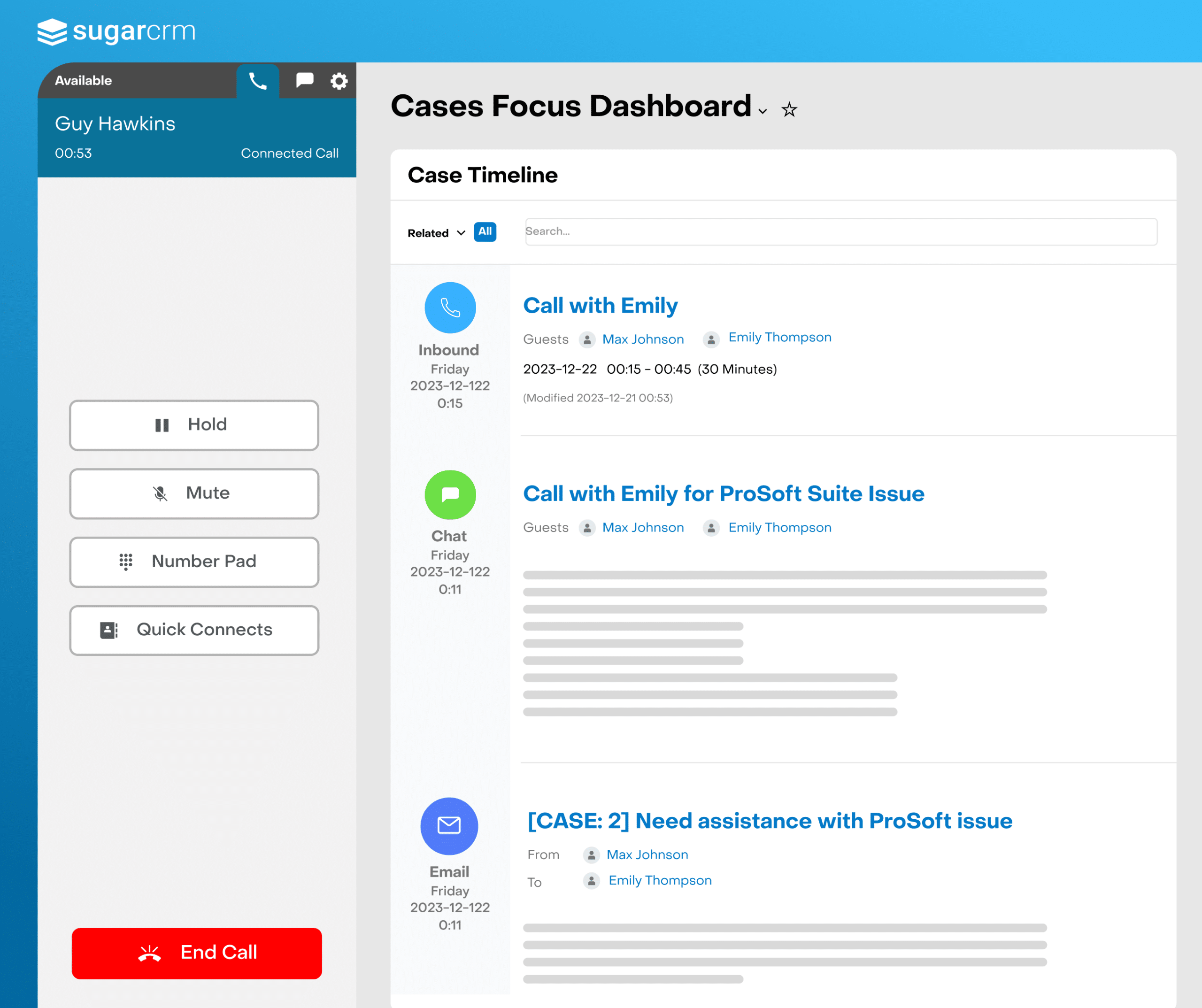CRM for Credit Unions: Using Sugar to Onboard New Members
What if your CRM could help you automate processes–such as on boarding new members of your credit union? Well, your members would have consistent experiences, staff would follow dependable processes, and you’d have tracking and reporting for those metrics.
In this blog post, we flesh out an example of how SugarCRM, a flexible platform, can be used to onboard new members of your credit union.
About Sugar’s Customer Journey Plug-In
One of the awesome features within Sugar allows you to create processes, track them, and add automation to speed them up. This feature is called the Customer Journey Plugin. The Customer Journey Plugin allows you to outline any of your standard processes as a task list in Sugar. The task list can include dependencies and automation that improve your members’ experience and increase onboarding satisfaction. We’ve seen some pretty innovative, strategic, and even silly examples of how this can be used.
Onboarding Credit Union Members
The flexibility of the Customer Journey Tool allows you to create an onboarding process that suits your organization’s exact needs. You can add whatever steps, responsible users, due dates, and time spans you desire. We put together a couple of examples to show the flexibility.
Example 1: Simple Onboarding
In this example, one employee is responsible for welcoming a member in a three-step process.

- Step one is an outbound welcome email, due two days after the member joins. The assigned user is reminded that they need to email the member, and they can use a template within Sugar to send the welcome message. This email is auto-archived within the CRM system and related to this member’s record.
- Step two is a phone call to welcome the member, two days after step one. This call is automatically logged in the CRM once it’s completed.
- Two days later, the third and final step is to mail a handwritten welcome letter. This letter could be auto-generated from a template in Sugar using the member’s record information. A PDF copy of this letter would be stored in this member’s record as well.
Example 2: Complex Onboarding
In this example, the member onboarding process is broken down into an even more detailed process to show how flexible this tool is.

Here’s a quick breakdown of the stages:
- Stage one of this process is to complete the new member welcome–which is a series of contact points (calls and letters) to welcome the member.
- The second stage is assigned to marketing, and it involves enrolling the member in a series of educational emails and sending them a demographics survey, which will help with targeting the member with relevant offers later on.
- Stage three ensures the member gets their post account setup tasks done–including enrolling in automatic payments and paperless statements.
- The fourth and final stage is the post-onboarding follow-up, which includes congratulating the member on their one-year anniversary and delivering a survey to see how their first year was.
Benefits
By using a tool such as Sugar to track and enforce member onboarding, you could:
- Track tasks that are completed on time and overdue
- Collaborate with fellow employees in real-time on tasks
- Analyze task performance in reports and charts
- Prevent employees from moving to a later task before completing a prior one
Concluding Thoughts
As a credit union, it’s easy to say you are prioritizing member relationships. It’s very difficult to actually do that. One place to start is by investing in tools that help you serve your members, rather than their transactions. Learn more about CRM for credit unions.


